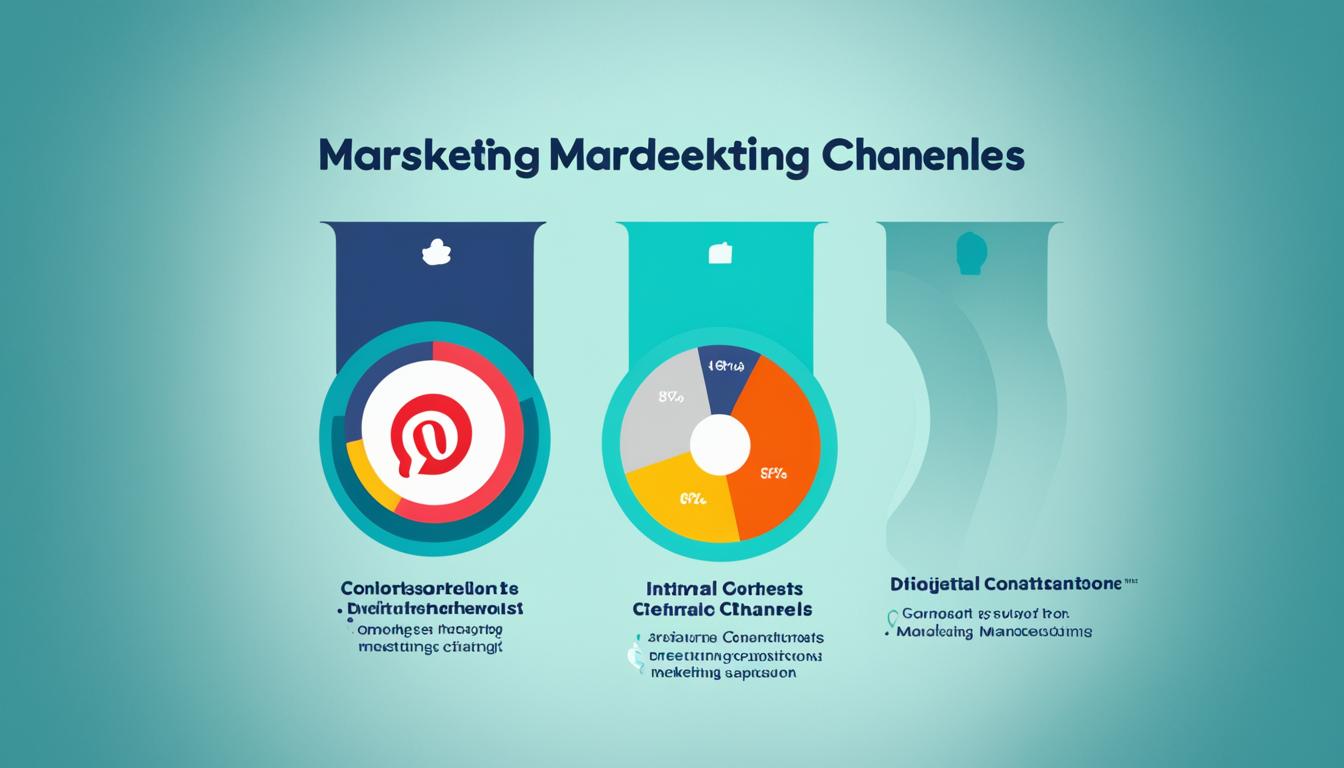Debenhams, a leading UK brand, has undergone a remarkable transformation in recent years, reinventing itself as an online store. In 2021, Debenhams made the strategic decision to shift its focus to the digital landscape and educate the public about its new online business model. With a robust marketing strategy in place, Debenhams aimed to establish itself as the go-to online department store, capturing the attention and loyalty of customers.
One of the key elements of Debenhams’ marketing strategy is digital advertising. By leveraging the power of digital channels, Debenhams aims to reach a wide audience and create meaningful brand experiences. They utilize a variety of tactics, including targeted ads, social media promotions, and influencer collaborations, to increase brand visibility and engagement.
Additionally, Debenhams adopts an omnichannel approach, seamlessly integrating their online and offline channels. This strategy allows customers to have a cohesive and personalized shopping experience, regardless of the platform they choose. By providing a consistent brand experience across all touchpoints, Debenhams enhances customer satisfaction and helps drive repeat business.
Market analysis plays a crucial role in Debenhams’ marketing strategy. By closely monitoring consumer behavior trends and conducting in-depth market research, Debenhams can identify emerging opportunities and stay ahead of the competition. This enables them to develop targeted promotional campaigns that resonate with their target audience, ultimately increasing brand loyalty and driving sales.
Key Takeaways:
- Debenhams has successfully transitioned into an online department store, leveraging digital advertising to increase brand visibility.
- Their omnichannel approach ensures a consistent and personalized shopping experience for customers.
- Market analysis enables Debenhams to identify emerging trends and develop targeted promotional campaigns.
- By embracing digital transformation, Debenhams has positioned itself as a leading player in the retail industry.
- Customer engagement and brand loyalty are key focus areas of Debenhams’ marketing strategy.
Brand Positioning and Market Analysis
Debenhams, with its long-standing history dating back to 1778, is a well-known brand in the UK. To maintain a competitive edge in the ever-evolving retail industry, Debenhams recognized the need to establish itself as an online leader. This required a comprehensive market analysis to understand consumer trends and adapt their strategies accordingly. By gaining insights into the preferences and behaviors of their target audience, Debenhams was able to strategically position their brand and attract customers in the digital landscape.
Market analysis played a crucial role in helping Debenhams identify opportunities for enhancing their brand’s positioning. By studying market trends, consumer preferences, and competitive forces, they gained a deeper understanding of the retail industry. Armed with this knowledge, Debenhams was able to make informed decisions about their product offerings, pricing strategies, and marketing campaigns.
Understanding consumer trends became essential for Debenhams to remain relevant in the market. By examining shifts in consumer behavior and preferences, they were able to align their brand image and messaging with the evolving needs of their target audience. This proactive approach allowed Debenhams to stay ahead of the curve and continually adapt to meet and exceed customer expectations.
Consumer Trends in the Retail Industry
| Trend | Description |
|---|---|
| Digitalization | The increasing shift towards online shopping and the growing influence of e-commerce platforms. |
| Omnichannel Retail | The integration of online and offline channels to create a seamless shopping experience for consumers. |
| Personalization | The desire for tailored product recommendations and personalized shopping experiences. |
| Sustainability | The rising demand for environmentally-friendly products and ethical business practices. |
| Conscious Consumerism | The preference for brands that align with their values and support social causes. |
By incorporating insights from their market analysis and staying attuned to consumer trends, Debenhams was able to differentiate itself and position their brand effectively in the digital retail landscape. Through their strategic approach, Debenhams strengthened their market presence, attracting a loyal customer base and solidifying their reputation as a prominent online department store.
Omnichannel Approach and Digital Advertising
Debenhams recognized the importance of an omnichannel approach in today’s digital landscape and seamlessly integrated their online and offline channels. By adopting this holistic strategy, Debenhams ensured a consistent customer experience across different touchpoints, enhancing brand visibility and customer engagement.
In order to maximize their online presence and effectively reach their target audience, Debenhams leveraged the power of digital advertising. By strategically utilizing various online marketing channels, such as search engine advertising, social media marketing, and display advertising, Debenhams was able to drive targeted traffic to their website and increase customer engagement.
One of the key advantages of digital advertising is the ability to personalize content and tailor it to specific customer segments. Debenhams capitalized on this opportunity by leveraging advanced technologies such as Deep Learning algorithms and ContextAI. These technologies enabled Debenhams to deliver personalized video content showcasing their fragrances and lingerie products, creating a captivating and aspirational context that enticed users to visit their website.
To further enhance their digital advertising efforts, Debenhams optimized their campaigns using data-driven insights. By analyzing customer behavior and preferences, they were able to target their advertisements more effectively, reaching the right audience at the right time. This targeted approach not only increased the efficiency and effectiveness of their digital advertising campaigns but also improved overall customer engagement and conversion rates.
Committed to providing a seamless and immersive online shopping experience, Debenhams continually evaluated and refined their digital advertising strategies. By staying abreast of the latest trends and technologies in online marketing, Debenhams ensured that their campaigns remained innovative, engaging, and impactful.
The Role of Digital Advertising in Debenhams’ Omnichannel Approach
Digital advertising played a pivotal role in Debenhams’ omnichannel approach by driving traffic to their online platforms and strengthening customer engagement. Through personalized and targeted campaigns, Debenhams was able to create a unique brand experience that resonated with their customers and encouraged them to explore their diverse range of products.
Whether through captivating video ads, enticing display banners, or effective search engine marketing, Debenhams strategically leveraged digital advertising to increase brand awareness, attract new customers, and foster customer loyalty. This comprehensive approach not only enhanced their online presence but also seamlessly connected their various channels, providing customers with a cohesive and seamless shopping experience.
Table: Digital Advertising Channels Utilized by Debenhams
| Channel | Description |
|---|---|
| Search Engine Advertising | Debenhams utilized search engine advertising to appear prominently in search engine results, driving targeted traffic to their website. |
| Social Media Marketing | Debenhams leveraged popular social media platforms to showcase their products, engage with customers, and generate brand awareness. |
| Display Advertising | Debenhams employed visually appealing display ads on relevant websites and platforms to capture the attention of potential customers. |
Debenhams’ strategic use of digital advertising, combined with their omnichannel approach, played a pivotal role in attracting and engaging customers in the competitive online retail industry. By personalizing their content, leveraging cutting-edge technologies, and optimizing their campaigns with data-driven insights, Debenhams maximized the impact and effectiveness of their digital advertising efforts.
Promotional Campaigns and Customer Loyalty
Debenhams understands the importance of nurturing customer loyalty in the highly competitive online retail landscape. To achieve this, the brand has implemented various promotional campaigns that offer enticing incentives and personalized offers to their customers.
Online Discounts and Personalized Offers
Debenhams recognizes that online discounts play a crucial role in attracting and retaining customers. By offering exclusive discounts on their website, Debenhams creates a sense of urgency and encourages customers to make purchases while enjoying significant savings.
Moreover, Debenhams takes customer personalization to the next level by tailoring their offers based on individual preferences and purchase history. Through thorough analysis of customer data and analytics, Debenhams gains deep insights into customer behaviors and preferences. This allows them to provide relevant and appealing offers, enhancing the overall customer experience and fostering loyalty.
Whether it’s a special discount on a favorite product or a personalized offer based on past purchases, Debenhams ensures that each customer feels valued and appreciated.
Driving Customer Loyalty Through Personalization
The power of personalization cannot be underestimated in building strong customer loyalty. Debenhams leverages customer data to provide tailored promotions that resonate with their audience, triggering a sense of exclusivity and enhancing the overall shopping experience.
By identifying customer preferences and shopping habits, Debenhams can segment their customer base and deliver personalized promotional campaigns that cater to each segment’s unique needs and desires. This targeted approach ensures that customers receive offers that align with their interests, maximizing the chances of repeat purchases and long-term loyalty.
In addition to personalized offers, Debenhams also employs engaging and interactive marketing strategies to strengthen customer loyalty. From gamified campaigns to rewards programs, Debenhams provides customers with memorable experiences that go beyond traditional transactions.
The Impact of Promotional Campaigns
Debenhams’ promotional campaigns have been instrumental in fostering customer loyalty and driving increased engagement. By offering online discounts and personalized offers, the brand effectively differentiates itself from competitors and creates a compelling value proposition for its customers.
Through these promotions, Debenhams encourages customers to become brand advocates, sharing their positive experiences with others and ultimately contributing to the growth of the business.
The effective use of promotional campaigns demonstrates Debenhams’ commitment to customer satisfaction and loyalty, solidifying its position as a leading online department store.
Competitive Landscape and Differentiation
In the competitive retail industry, Debenhams faced strong competition, particularly from established retailers like Marks & Spencer (M&S). To stay ahead of the competition, Debenhams strategically analyzed the competitive landscape, identifying unique opportunities for differentiation.
Debenhams successfully differentiated itself by offering exclusive own brands, such as Designers at Debenhams. This collection showcased quality and modern fashion, setting Debenhams apart from its competitors. By collaborating with renowned designers, Debenhams provided customers with a unique value proposition and a diverse range of products not readily available elsewhere.
This strategic focus on differentiation enabled Debenhams to attract customers seeking something distinct and exclusive. By providing exceptional design and quality, Debenhams cemented its position as a go-to destination for customers who value style and individuality.
| Competitor | Unique Selling Points |
|---|---|
| Marks & Spencer (M&S) | Wide range of products, emphasis on quality, established brand reputation |
| Debenhams | Exclusive own brands, focus on quality and modern fashion |
Consumer Behavior Trends and Target Audience
Understanding consumer behavior trends is essential for businesses to effectively connect with their target audience. Debenhams, as a leading online department store, recognized the importance of monitoring and analyzing these trends to tailor their marketing strategies and stay ahead of the game.
Debenhams closely studied online shopping habits, preferences, and purchasing patterns to gain valuable insights into their target audience. By examining consumer behavior trends, they were able to identify shifts in customer preferences, emerging trends, and changing shopping habits. This information allowed Debenhams to adapt their marketing strategies and offerings to better resonate with their target audience.
One notable consumer behavior trend that Debenhams embraced was the increasing popularity of online shopping. With more consumers turning to the convenience of e-commerce, Debenhams prioritized their digital presence and optimized their online shopping experience. They understood that their target audience desired a smooth and seamless online shopping journey, and they worked diligently to meet those expectations.
To engage their target audience effectively, Debenhams utilized data-driven insights to create personalized marketing campaigns. By leveraging customer data, including browsing history and purchase behavior, Debenhams could tailor their promotions and recommendations to match individual preferences. This personalized approach allowed them to deliver relevant and enticing offers to each customer, fostering a deeper connection and driving sales.
Furthermore, Debenhams recognized the importance of staying ahead of evolving consumer trends. They actively monitored emerging trends in fashion, lifestyle, and shopping behavior to continuously adapt their product offerings and marketing strategies. By being proactive in their approach, Debenhams could position themselves as trendsetters and influencers, resonating with their target audience’s changing interests and preferences.
Importance of Target Audience Analysis and Segmentation
Target audience analysis and segmentation played a critical role in Debenhams’ marketing strategy. By thoroughly understanding their target audience’s demographics, interests, and purchasing behaviors, Debenhams could create targeted campaigns that resonated with specific customer segments.
Debenhams employed various segmentation techniques, such as demographic segmentation, psychographic segmentation, and behavioral segmentation, to divide their target audience into distinct groups. This allowed them to tailor their marketing messages, promotions, and product offerings to each specific segment’s unique needs and preferences.
Segmentation also allowed Debenhams to allocate their marketing budget effectively. By identifying the most valuable customer segments, Debenhams could focus their resources on engaging those specific groups. This strategic allocation of resources ensured maximum impact and a higher return on investment.
In summary, staying attuned to consumer behavior trends and understanding the target audience are crucial for businesses like Debenhams striving to succeed in the competitive online retail industry. By analyzing online shopping habits, personalizing marketing efforts, and segmenting their target audience, Debenhams was able to effectively engage with their customers, build brand loyalty, and drive growth.
Digital Transformation and Innovation
As the retail landscape continues to evolve, Debenhams recognized the importance of embracing digital transformation and innovation. By investing in IT systems, the company automated its core business processes, allowing store staff to focus on providing exceptional customer service. This digital transformation not only streamlined operations but also paved the way for Debenhams to expand its online retail presence and cater to the growing demand for convenient and seamless shopping experiences.
To stay at the forefront of the industry, Debenhams explored new and exciting technologies, including augmented reality (AR), to enhance customer engagement. By incorporating AR into their digital platform, Debenhams offered customers the opportunity to virtually try on products, visualize furniture in their homes, and experience immersive shopping experiences. This innovative integration of technology not only differentiated Debenhams from its competitors but also created a unique and memorable shopping journey.
Debenhams’ commitment to digital transformation and innovation allowed the company to adapt to the rapidly changing retail landscape and meet the evolving needs of its customers. By leveraging technological advancements, Debenhams not only improved operational efficiency but also provided customers with enhanced digital experiences that fostered greater brand loyalty and satisfaction.
Customer Experience and Personalization
Debenhams understands the significance of customer experience and personalization in today’s online shopping landscape. Through their marketing strategy, the brand focuses on creating a seamless and convenient shopping experience that enhances the customer journey.
By tailoring their offerings to individual customers, Debenhams aims to build stronger relationships and increase customer satisfaction. They leverage data insights to provide personalized recommendations and targeted promotions, ensuring a more relevant and engaging shopping experience for each shopper.
The Importance of Customer Experience
A positive customer experience is essential for online shoppers. Debenhams recognizes this and sets high standards to meet and exceed customer expectations. By prioritizing customer experience in their marketing strategy, Debenhams aims to create a user-friendly interface, easy navigation, quick access to product information, and seamless checkout processes.
Furthermore, Debenhams focuses on providing exceptional customer service through various channels, such as live chat support and dedicated customer service representatives, to assist with any queries or concerns throughout the customer journey.
Personalization for Enhanced Engagement
In the era of online shopping, customers expect a personalized experience that caters to their individual needs and preferences. Debenhams recognizes this and leverages advanced data analytics and customer insights to provide personalized recommendations and tailored promotions.
By analyzing customer data, including past purchase history, browsing behavior, and preferences, Debenhams can offer relevant product suggestions and exclusive offers that resonate with each customer. This approach not only enhances customer engagement but also increases the likelihood of conversion and repeat purchases.
Seamless Customer Journey
Debenhams aims to provide a seamless customer journey from start to finish. They optimize their website and mobile app to ensure a user-friendly interface and easy navigation. By streamlining the search and purchase processes, Debenhams eliminates any friction points and enhances the overall shopping experience.
Additionally, Debenhams offers personalized product recommendations based on each customer’s browsing and purchase history. This personalized touch helps customers discover new products and find what they need more efficiently.
The Impact of Personalization on Customer Loyalty
By prioritizing customer experience and personalization, Debenhams aims to build stronger customer relationships and foster loyalty. When customers feel valued and understood, they are more likely to become repeat customers and advocates for the brand.
Debenhams’ personalized approach not only enhances customer satisfaction but also increases the likelihood of customer retention. By continuously improving the customer journey and offering personalized incentives, Debenhams strengthens its position as a trusted and preferred online shopping destination.
Data Analytics and ROI Measurement
Debenhams understands the importance of data analytics in measuring the effectiveness of their marketing efforts and maximizing return on investment (ROI). By leveraging data-driven insights, they were able to make informed decisions and optimize their marketing strategies.
The Power of Data Analytics
Data analytics played a pivotal role in Debenhams’ marketing strategy. They collected and analyzed vast amounts of data to gain valuable insights into customer behavior, market trends, and campaign performance. This allowed them to make data-driven decisions and identify areas for improvement.
By tracking key performance indicators (KPIs) such as customer acquisition cost, conversion rates, and revenue, Debenhams was able to measure the effectiveness of their marketing campaigns. They could identify which campaigns generated the highest ROI and allocate their resources accordingly.
Optimizing Marketing Spend
Through data analytics, Debenhams gained visibility into the performance of their marketing channels and campaigns. They could identify which channels were driving the most traffic, conversions, and revenue. This allowed them to allocate their marketing budget effectively, focusing on the channels and campaigns that provided the highest ROI.
Additionally, data analytics helped them optimize their marketing spend by identifying areas of inefficiency and waste. By analyzing the data, they could identify any underperforming campaigns or channels and make adjustments to improve performance and cost-effectiveness.
Continuous Performance Tracking
Debenhams didn’t stop at the initial analysis; they continuously tracked and monitored the performance of their marketing campaigns. This allowed them to identify trends, patterns, and opportunities for further optimization.
They utilized data analytics tools and dashboards to keep a close eye on key metrics and performance indicators. This real-time tracking enabled them to make agile decisions and react quickly to market changes or campaign performance fluctuations.
Maximizing ROI with Data Insights
By harnessing the power of data analytics and continuously measuring ROI, Debenhams was able to make data-driven decisions that maximized their marketing effectiveness. They could identify the most successful strategies and tactics, replicate them, and eliminate any marketing efforts that didn’t generate a favorable ROI.
This data-driven approach enabled Debenhams to optimize their marketing campaigns, allocate resources effectively, and drive business growth. It empowered them to focus on initiatives that delivered tangible results, providing a solid foundation for success in the competitive retail industry.
Conclusion
Debenhams’ marketing strategy in 2024 has showcased the power of digital transformation in the competitive retail industry. With a focus on customer engagement and an omnichannel approach, Debenhams successfully positioned itself as a leading online department store. By personalizing marketing efforts and staying ahead of consumer behavior trends, Debenhams created a strong bond with its target audience.
The brand’s commitment to innovation was evident through targeted digital advertising and promotional campaigns. These tactics not only increased brand visibility but also fostered customer loyalty. By continuously analyzing data and measuring ROI, Debenhams ensured the effectiveness of its marketing strategies, resulting in a successful and impactful marketing campaign in 2024.
The retail industry is evolving rapidly, and Debenhams’ digital transformation exemplifies its ability to adapt to changing times. By embracing technology, Debenhams enhanced the customer journey, delivering a seamless and personalized shopping experience. This customer-centric approach has allowed Debenhams to strengthen its position in the market and achieve sustainable growth.
Looking ahead, Debenhams will continue to prioritize customer engagement and leverage digital strategies to stay relevant in the ever-changing retail landscape. With its innovative approach and commitment to customer satisfaction, Debenhams is well-positioned to thrive in the competitive retail industry.





